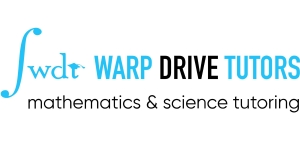Advanced Level Further Mathematics (Edexcel, OCR, MEI, AQA, Cambridge)
Some Basics:
Further Mathematics A level is now a completely separate subject from Mathematics A Level. Grades awarded based on 4 examinations at the end of the two year course. Two of the papers cover pure maths and two of the papers cover applied maths. While everyone sit the same pure maths papers, students can choose the their two applied options, although in many cases, schools choose which options to teach. Further Maths continues to grow in popularity as an A level, which is good news for grade boundaries, as not that long ago only a few elite mathematicians in the country would study the subject. It is a pre-requisite for undergraduate degrees in mathematics at most UK universities, but many students are surprised that it is a pre-requisite for some Economics, Science and engineering degrees as well. The maths in the course is challenging; beyond college level calculus, and including college level mechanics, statistics and linear algebra.
Pure topics usually covered include (everyone studies these topics):
- Proof: inductive, algebraic, contradiction, exhaustion, geometric
- Complex numbers: Argand, conjugates, De Moivre, Modulus-Argument, roots of unity
- Matrices: calculations, transformations in 2-d and 3-d, inverse of 3×3 by hand, solving systems of equations, geometric interpretations in 3-d
- Algebra: roots of polynomials, method of differences, manipulate sums of series, Mclaurin series
- Vectors: scalar product, cross product, equations of lines and planes, intersections, distances between lines and planes
- Integration: volumes, mean of function, undefined limits, inverse trig functions, selecting trig substitutions
- Polar co-ordinates: converting between Cartesian and polar, curve sketching, areas
- Hyperbolic functions: manipulate, calculus, derive logarithmic form, use for integration
- Differential Equations: 1st and 2nd order, general and particular solutions, auxiliary equations, complementary functions, Euler’s method, separation of variables, integrating factors, simple harmonic motion including damped oscillations, systems of differential equations
Options:
- Further Pure Mathematics 1
- Further Pure Mathematics 2
- Further Statistics 1
- Further Statistics 2
- Further Mechanics 1
- Further Mechanics 2
- Further Decision Mathematics 1
- Further Decision Mathematics 2
Typical problem areas include:
- Application of vector geometry in real life contexts
- Defining and linking variables to solve problems involving connected rates of change
- Selecting the appropriate technique to solve a differential equations, especially if it is not presented in the standard form
- Sketching polar graphs
- Getting lost part-way through a proof by induction
How a tutor can help:
This is a very challenging course, comprised almost exclusively of college level mathematics. It is usually taken as one of four A Levels, so students who select forfeit most of their free periods. Time is also an issue in these exams; there just isn’t time to approach problems in different ways. To do well, you need to be able to immediately spot what you need to do. The maths in this course is above the comfort level of most maths teachers, and it is not uncommon for teachers to be ‘a page ahead’ of their classes. Our tutors are highly experienced teachers who know exactly what students find difficult in this course and have developed succinct and clear explanations and examples to help you understand the material. They have impeccable records with their own classes and are experts in preparing students for these exams. Furthermore, the syllabus changed in 2018 to encourage students to make full use of their calculators. Understandably, it is taking schools a little longer to catch up with these changes, and you may find that you are not benefiting from the full capability of your calculator. A tutor can show you how to use your calculator to solve equations, calculate definite integrals and even find equations of tangents and normal.
Another way our tutors have helped students with Further maths is by supporting them to learn a different option than their school might offer. Most schools decide the two options they will teach, and students learn this content (typically Statistics 1 and Mechanics 1). If you find that Mechanics has always made sense to you, but Statistics never has, a tutor could help you to prepare for the Mechanics 2 option. Similarly, the Decision modules are especially interesting for anyone hoping to study computing at university, and a tutor could support you to learn this content. Any students applying to study maths at Cambridge must have knowledge of at least the Pure Mathematics 1 option for their STEP exam.
Warp Drive Tutors, Inc. has been developed independently from and is not endorsed by Cambridge Assessment International Education. A-Level, GCSE and iGCSE are registered trademarks owned by Cambridge Assessment International Education.
